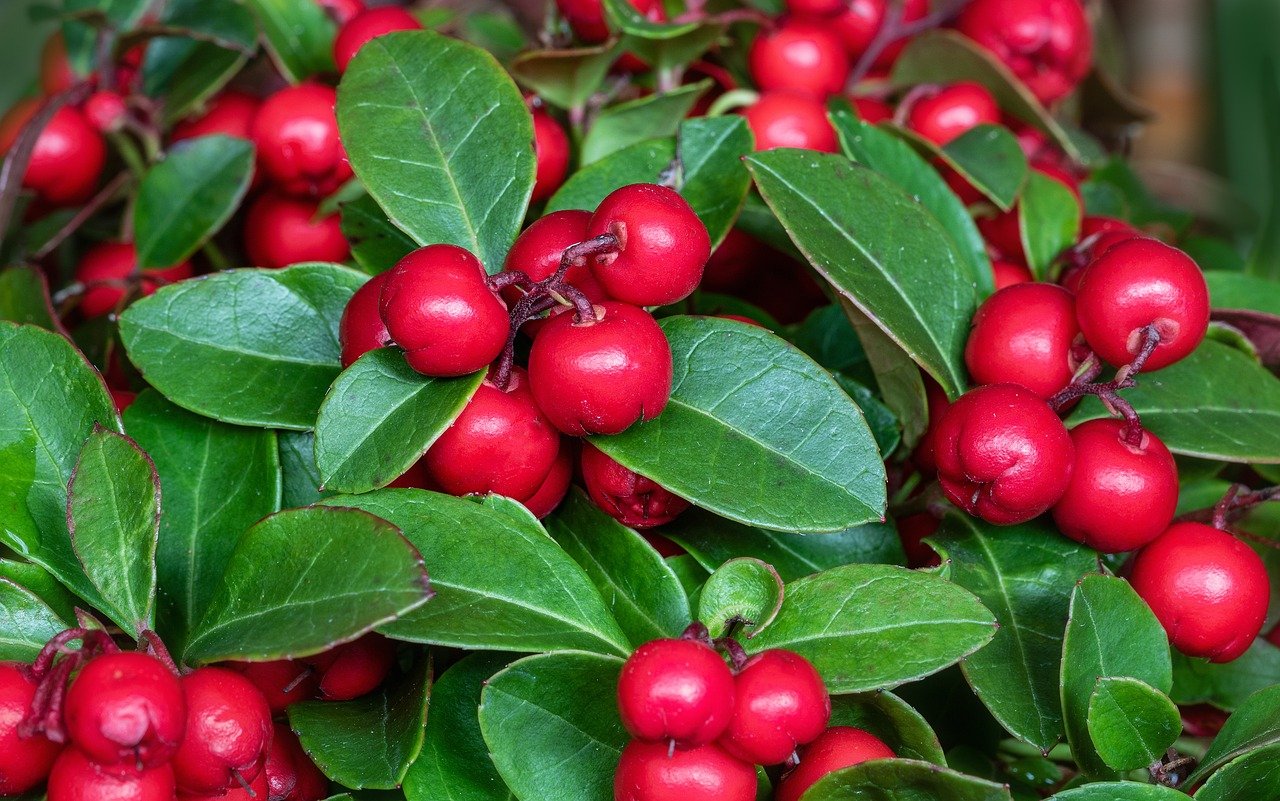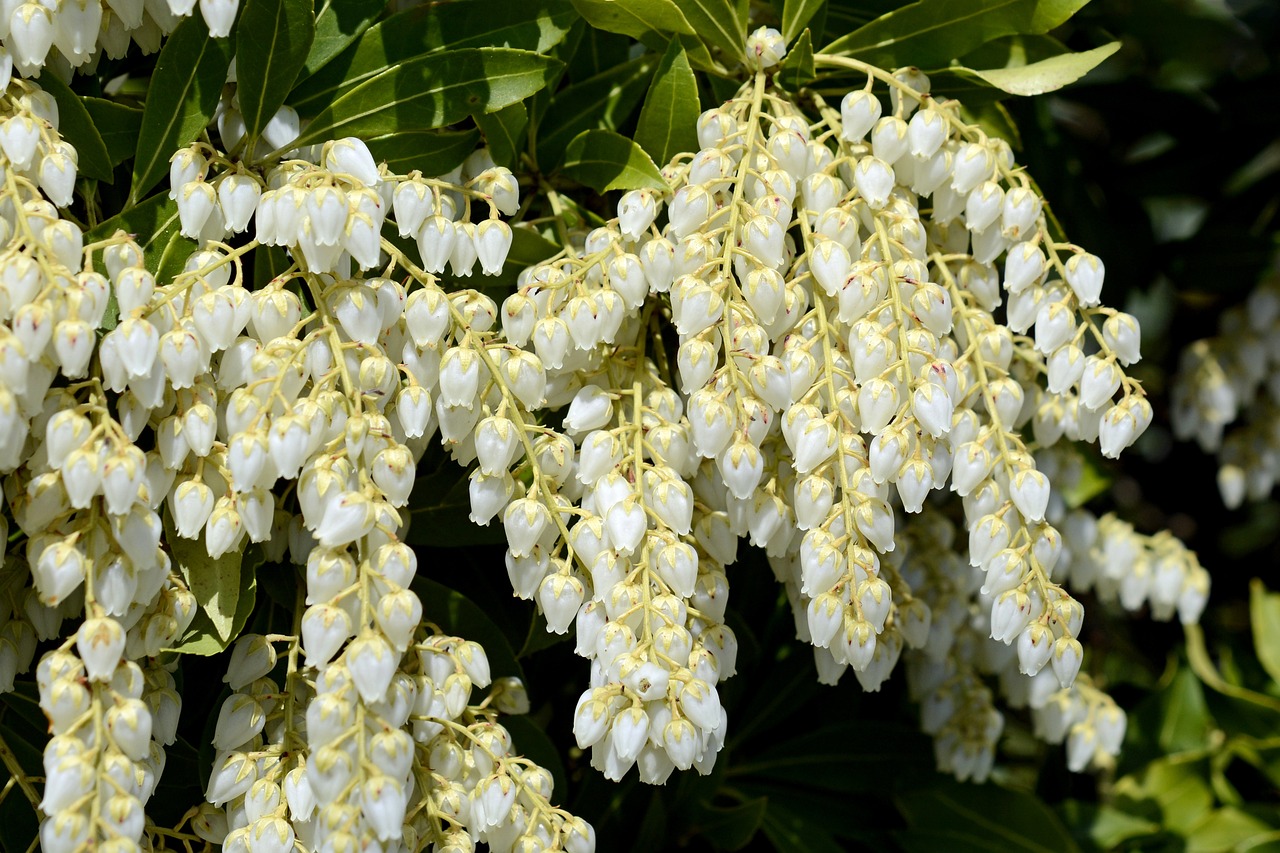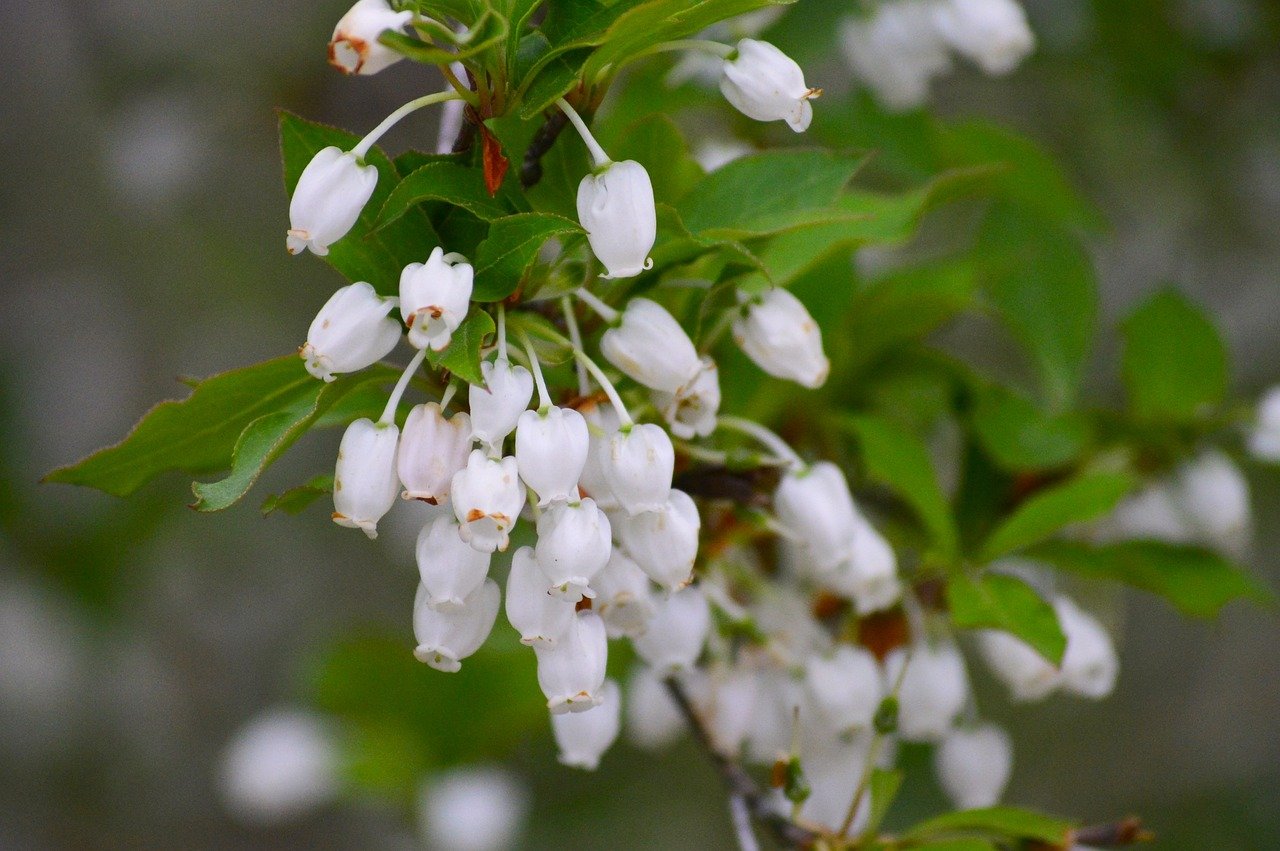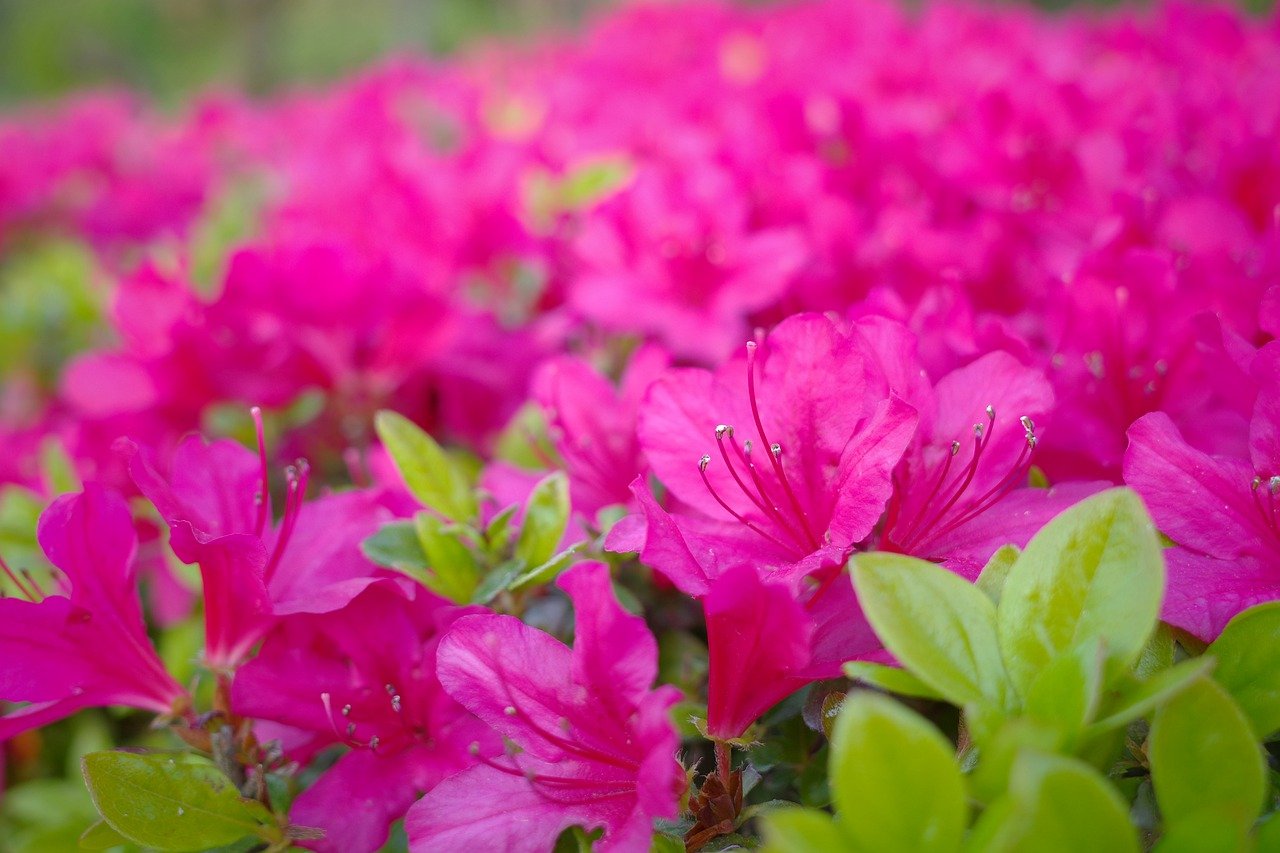Rhododendrons: Features and Care
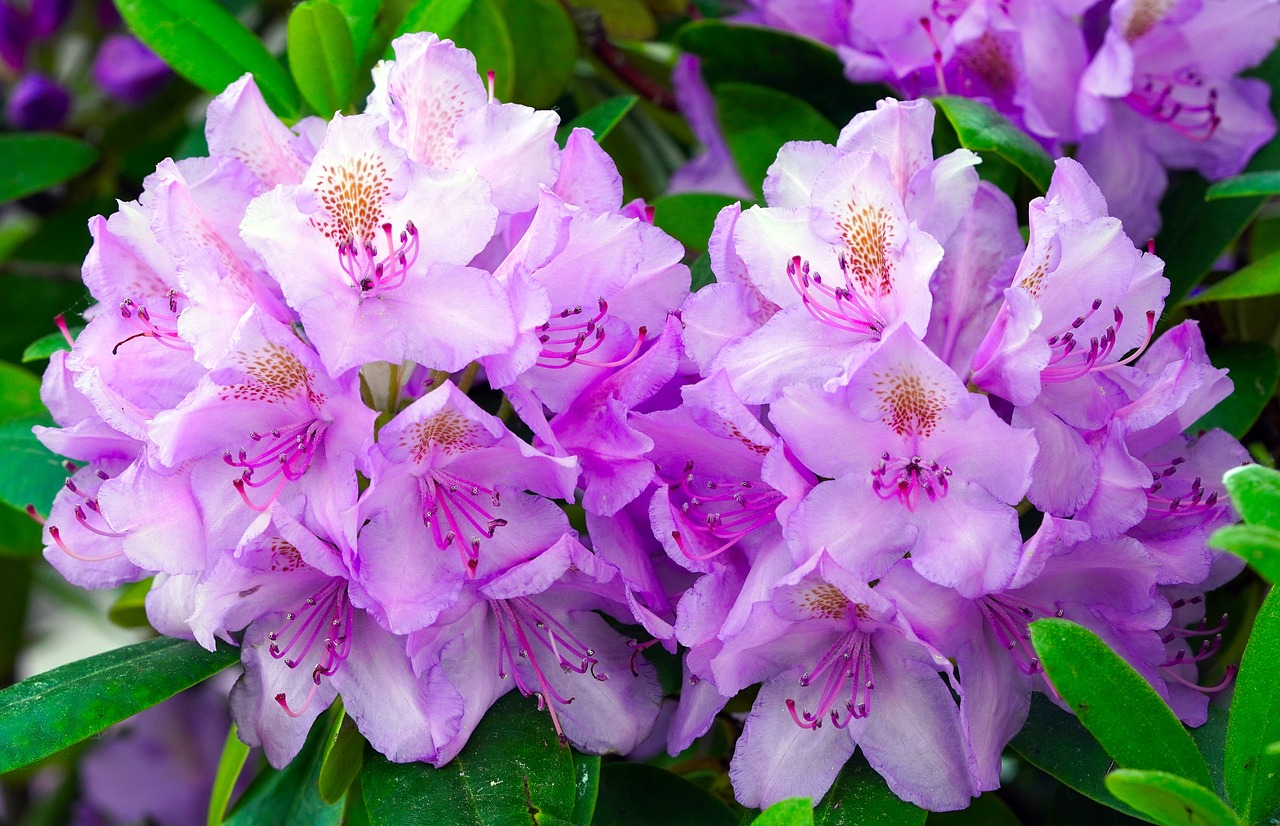
Rhododendrons are known for their luxurious flowers and glossy leaves, making them a popular choice for gardens and parks. Their large, showy blooms are beloved not only in Japan but also worldwide, and they are a favorite among gardening enthusiasts.
In this article, I will explore the basic information, cultural significance, historical background, and essential care tips for rhododendrons.
Basic Information
- Scientific Name: Rhododendron
- Family: Ericaceae
- Origin: Mountainous regions of Asia, Europe, and North America
- Appearance: Rhododendrons produce large, rounded clusters of flowers in vibrant colors such as red, pink, white, and purple. Their leaves are leathery, glossy, and evergreen, providing year-round interest.
- Blooming Season: Primarily spring (April to May), bringing vibrant color to gardens.
Cultural Significance Around the World

Rhododendrons have been regarded as symbols of elegance and prestige across different cultures. In Japan, they are associated with the phrase “high mountain flower,” representing unattainable beauty and nobility. They have also been valued as an essential element in traditional garden landscapes.
In Nepal, rhododendrons, known locally as “Laliguras,” are the national flower. These high-altitude blossoms are cherished as a harbinger of spring and are often used in festivals and decorations.
In Europe, rhododendrons gained popularity during the Victorian era as ornamental plants. Their beauty and hardiness made them a favorite for high-end garden and park designs, symbolizing sophistication and refinement.
Historical Episodes of the Flower
The cultivation and hybridization of rhododendrons began in earnest in 19th-century Europe when British plant explorers brought specimens back from the Himalayas and China. These introductions quickly caught the attention of gardeners, leading to the development of numerous hybrid varieties.
In Japan, rhododendrons gained recognition as valuable ornamental plants during the Edo period, especially in western Japan’s gardens. By the Meiji era, influenced by European horticultural trends, new imported varieties expanded the diversity of rhododendrons in Japan.
In the United States, rhododendrons became a beloved part of the Appalachian Mountains’ natural landscape. They are widely celebrated in national parks, where visitors are drawn to their stunning displays during the blooming season.
Gardening Advice
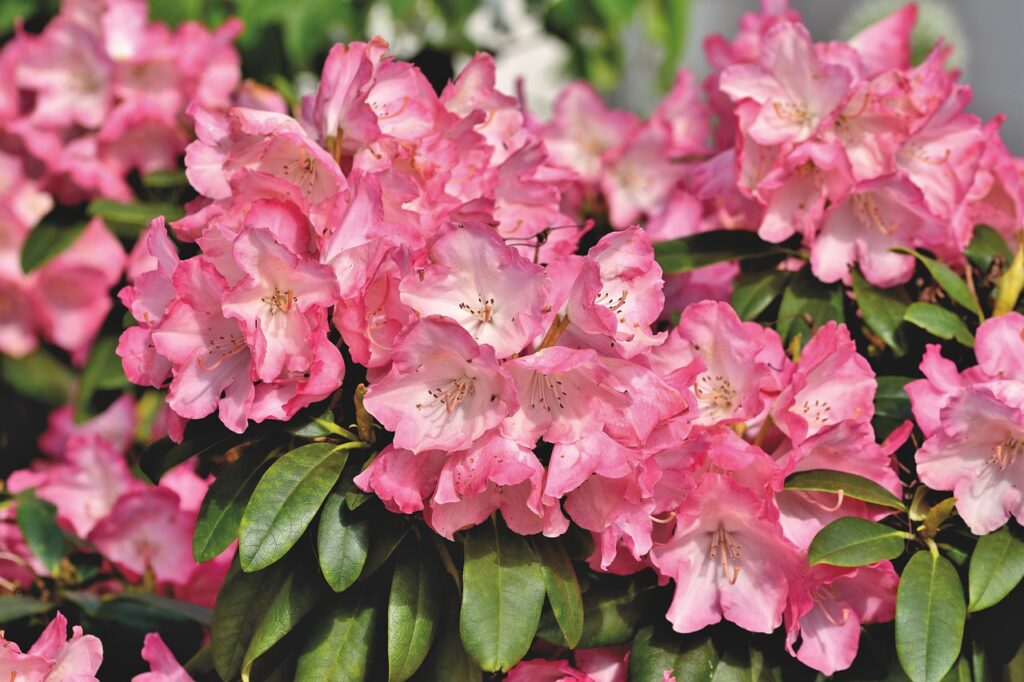
Rhododendrons thrive when their environment is carefully managed. Here are some key points to help you grow healthy, vibrant plants:
Light
Rhododendrons prefer partial shade or bright dappled sunlight. They can suffer from leaf scorch if exposed to strong direct sunlight, so a spot with morning sun and afternoon shade is ideal.
Watering
Water thoroughly when the surface soil becomes dry. While they enjoy moisture, avoid overwatering, as they are sensitive to poor drainage. Be especially mindful of watering during dry seasons.
Soil
Acidic soil is essential for rhododendrons. Using commercially available soil mixes specifically designed for azaleas and rhododendrons is highly recommended. Ensure the soil retains moisture while also allowing proper drainage.
Fertilizer
Apply a slow-release fertilizer in early spring to encourage abundant blooms. After flowering, an additional feeding can support healthy growth for the next season.
Pruning
Remove spent flowers promptly to prevent energy waste and encourage better blooming. Light pruning after flowering can also help maintain the desired shape.
Winter Care
Many rhododendron varieties are cold-hardy, but in regions with severe frost, protect the base of the plant with mulching for added insulation.
Conclusion
Rhododendrons are a stunning addition to any garden, with their magnificent blooms and evergreen foliage providing year-round beauty. Their cultural and historical significance, spanning from Japan to Europe and America, adds depth to their allure.
By incorporating rhododendrons into your garden, you can enjoy their elegant presence and connect with a rich tradition of appreciation for this remarkable plant.

